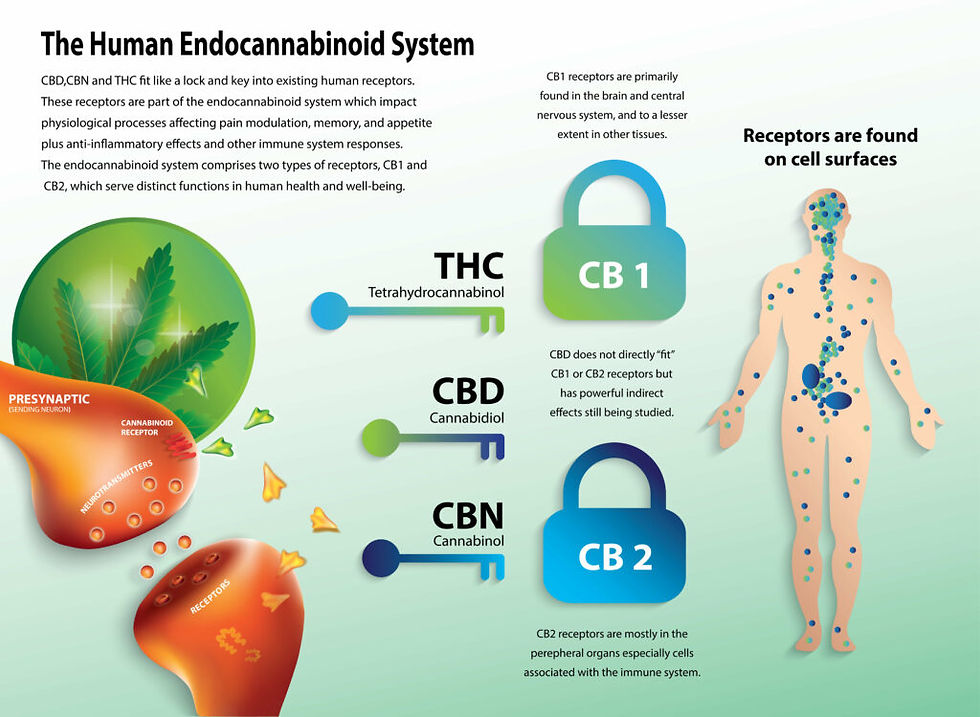Our Endocannabinoid System Explained.
- Matthew Guilbault

- Oct 23, 2023
- 2 min read
The endocannabinoid system plays a crucial role in regulating various biological and neurological processes within the human body, as well as in other forms of life on Earth. This intricate system acts as a conductor, ensuring the proper functioning of all vital systems and processes.
One way the endocannabinoid system is activated is through the consumption of cannabinoids found in the cannabis plant, in particular. The cannabis plant contains numerous cannabinoids, with two of the most abundant being THC (tetrahydrocannabinol) and CBD (cannabidiol).

THC is known for its psychoactive properties, which can induce a euphoric or "high" sensation when consumed. On the other hand, CBD is mostly recognized for its wide variety of therapeutic and healing properties. It has gained wide acceptance for its therapeutic benefits without causing psychoactive effects. When THC and CBD overlap in their therapeutic qualities, is known as the “entourage effect”.
The endocannabinoid system is a complex network of receptors, enzymes, and cannabinoids that play a crucial role in maintaining homeostasis (balance) in the body. It is involved in regulating various physiological processes such as mood, appetite, pain sensation, immune function, and more.
Cannabinoids like THC (tetrahydrocannabinol) and CBD (cannabidiol) interact with the endocannabinoid system by binding to specific receptors known as CB1 and CB2 receptors. THC primarily binds to CB1 receptors found mainly in the brain and central nervous system, leading to psychoactive effects. On the other hand, CBD has a low affinity for these receptors but can modulate their activity indirectly. These interactions between cannabinoids and the endocannabinoid system have led researchers to explore various therapeutic applications.

For example, THC-based therapies have been developed for conditions such as nausea and vomiting associated with chemotherapy or loss of appetite in HIV/AIDS patients. CBD has gained attention for its potential anti-inflammatory properties and use in treating epilepsy.
By manipulating cannabinoid receptor activity or enhancing endocannabinoid levels through different therapeutic approaches, researchers are working towards finding novel treatments for pain management, anxiety disorders, neurodegenerative diseases like Alzheimer's or Parkinson's disease, cancer-related symptom relief, and many more.

While the initial findings regarding the efficacy of cannabinoids are solid, it's crucial to acknowledge that more research is required. It is imeprative this research should focus on integrating terpenes heated at various temperatures and durations that work synergistically with cannabinoids, enhancing their effectiveness. The inclusion of various terpenes is vital in producing various effects that act as a key that unlocks the unique healing properties of cannabinoids and/or THC.
Excerpt from “Triumph Over Crohns-How One Man Beat the Unbeatable”. Matthew Stonewell Guilbault, INHC© All Rights Reserved 2023.



Comments